Permeable garden tips: 5 ways to stop your outdoor space from flooding
Taking steps to make your garden more permeable is essential for preventing flooding, experts say
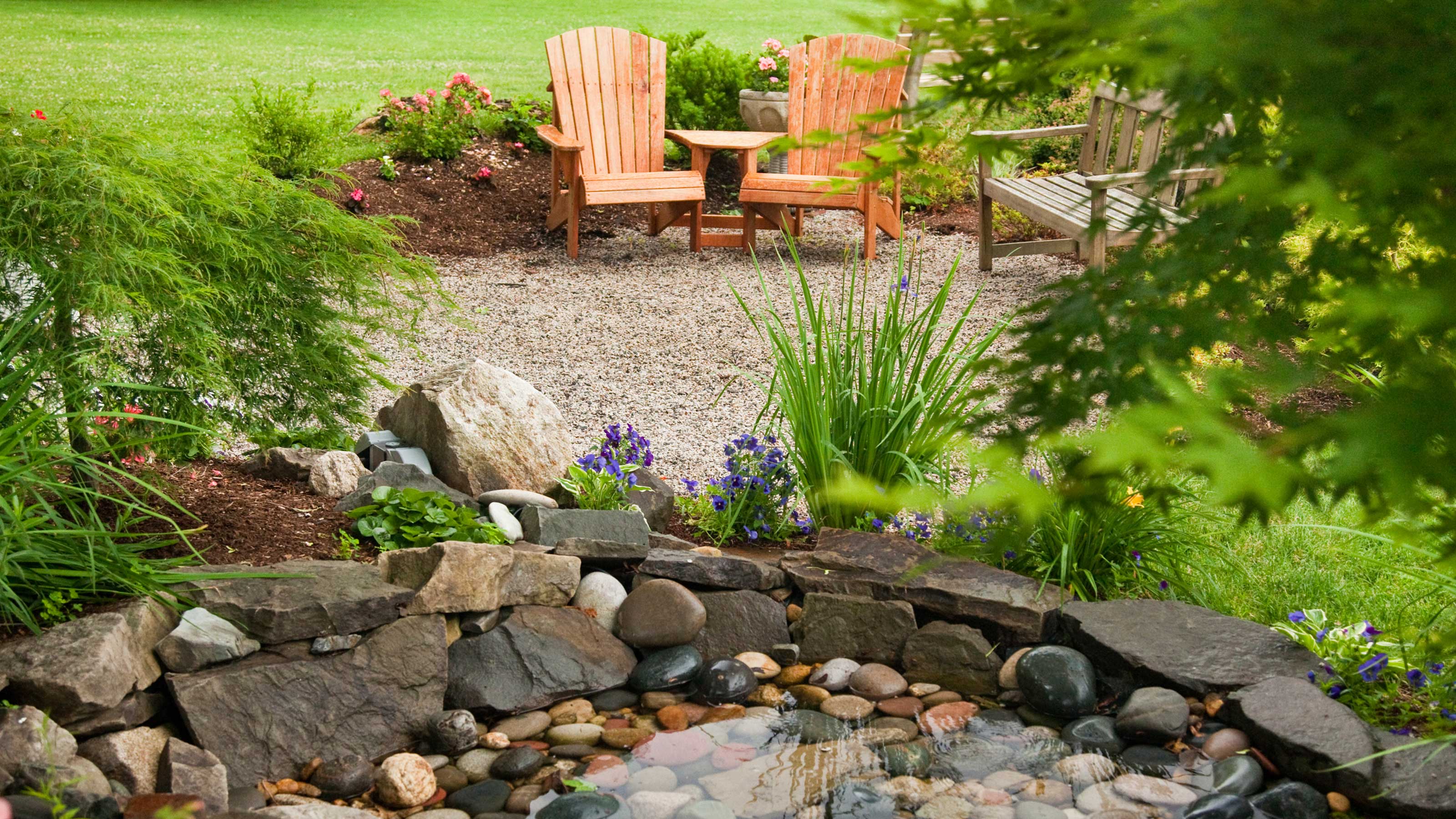
With many parts of the world now experiencing regular flash flooding, permeable garden tips can come in useful to minimize the risk of damage to your home. In fact, impermeable paving and other backyard design elements that don't factor in the impact of heavy rainfall are huge problems that worsen the effects of flooding.
These landscaping ideas suggested by garden experts are not just decorative – they will help prepare your garden for heavy rains for years to come.
Permeable garden tips: 5 ways to soak up rainwater
Similarly to rain garden features, these five tips will help to prevent your backyard from flooding.
1. Consider replacing hard paving with permeable options
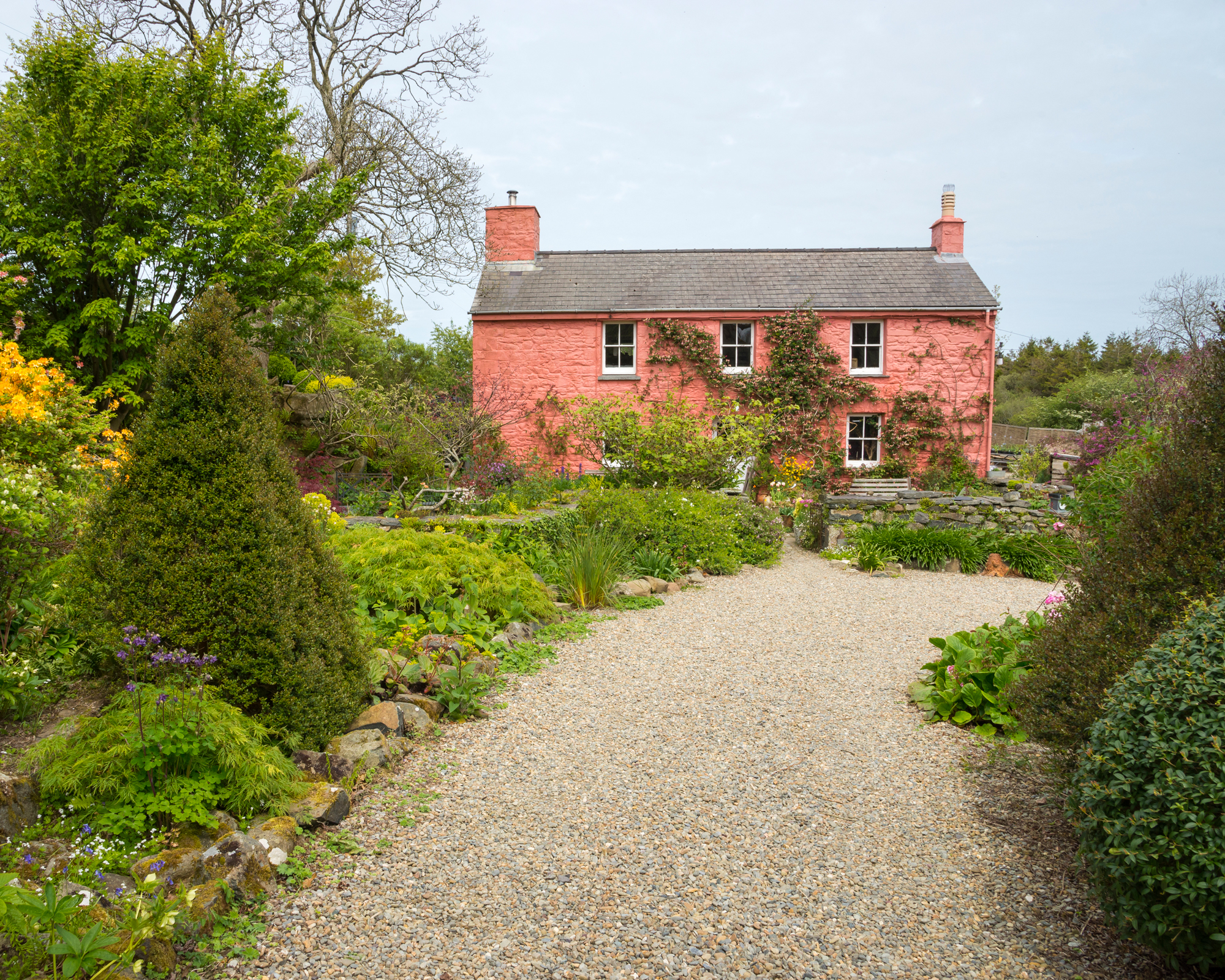
Most driveway ideas rely heavily on hard landscaping, which often creates problems during heavy rainfall, with water having nowhere to go. Liam Lapping, a garden expert at Flowercard, says: 'When it comes to making our gardens more permeable it is important to consider how best to drain your garden of excess water, especially when many of us have less porous materials covering our driveways, such as paving and tarmac which can lead to the flooding of our homes.'
Liam explains that often the best solutions are the cheapest; it can be as simple as replacing hard landscaping with garden gravel ideas, which don't cost much. 'You should consider a variety of porous landscape options and try to keep hard surfaces around your garden to a minimum, as this will help with localized flooding,' he says. 'The cheapest permeable option for landscaping is gravel; it allows water to drain quickly which is ideal especially in areas of heavy rainfall.'
2. Rethink paving materials
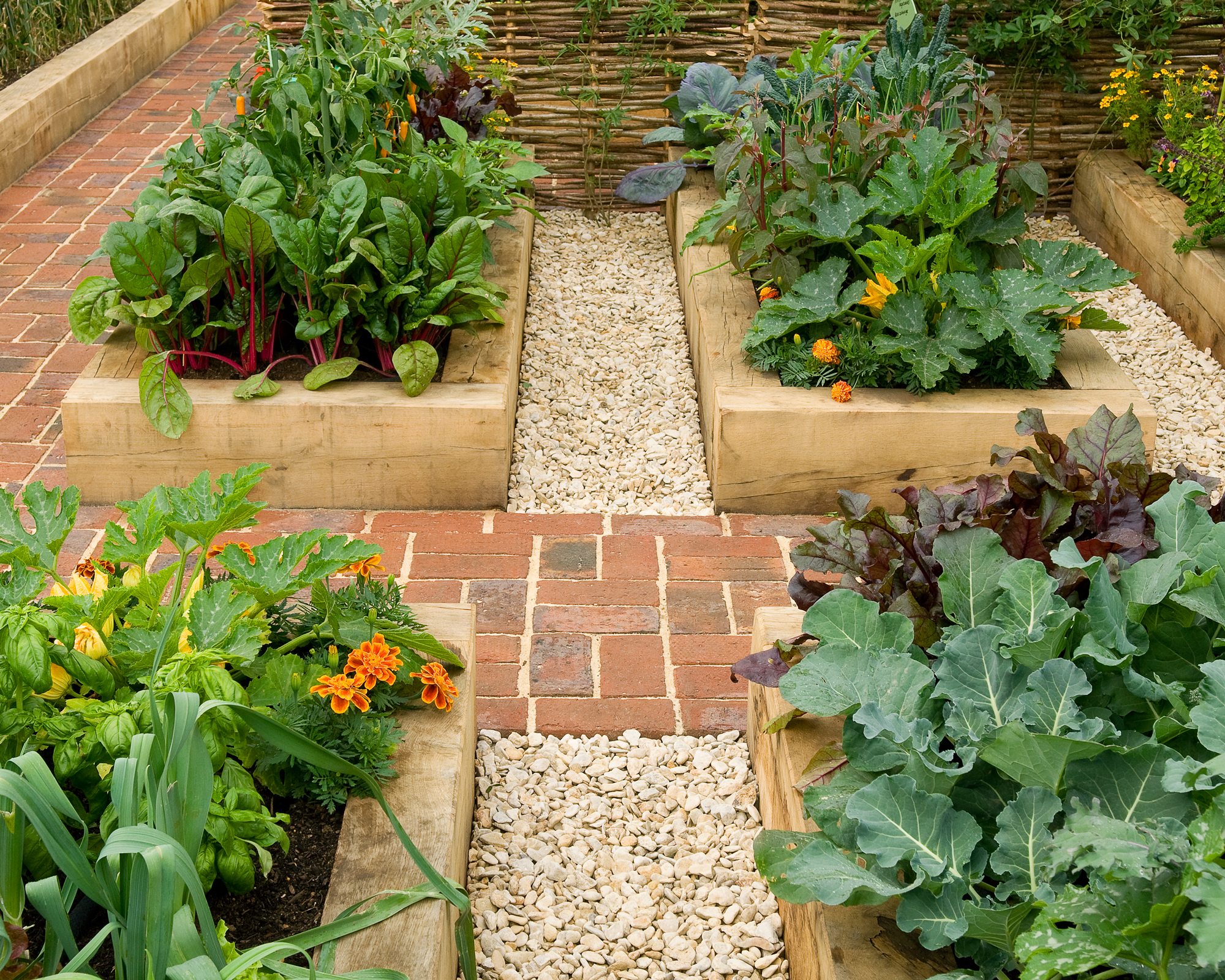
If you don't want a gravel driveway, you can rethink what your driveway or patio is paved with. Liam recommends 'brick pavers, which have small holes to allow the water to drain through them, and cellular pavers which are made from recycled plastic and hold aggregates together. You could also consider a grass guard, which means you are still able to drive vehicles without the grass turning into mud.'
Angela Slater, Gardening Expert at Hayes Garden World, also suggests interspersing your hard landscaping with 'patches of planting' or using 'heavy-duty metal grids and planting underneath with grasses which won't be harmed by being run over occasionally.'
3. Improve soil structure
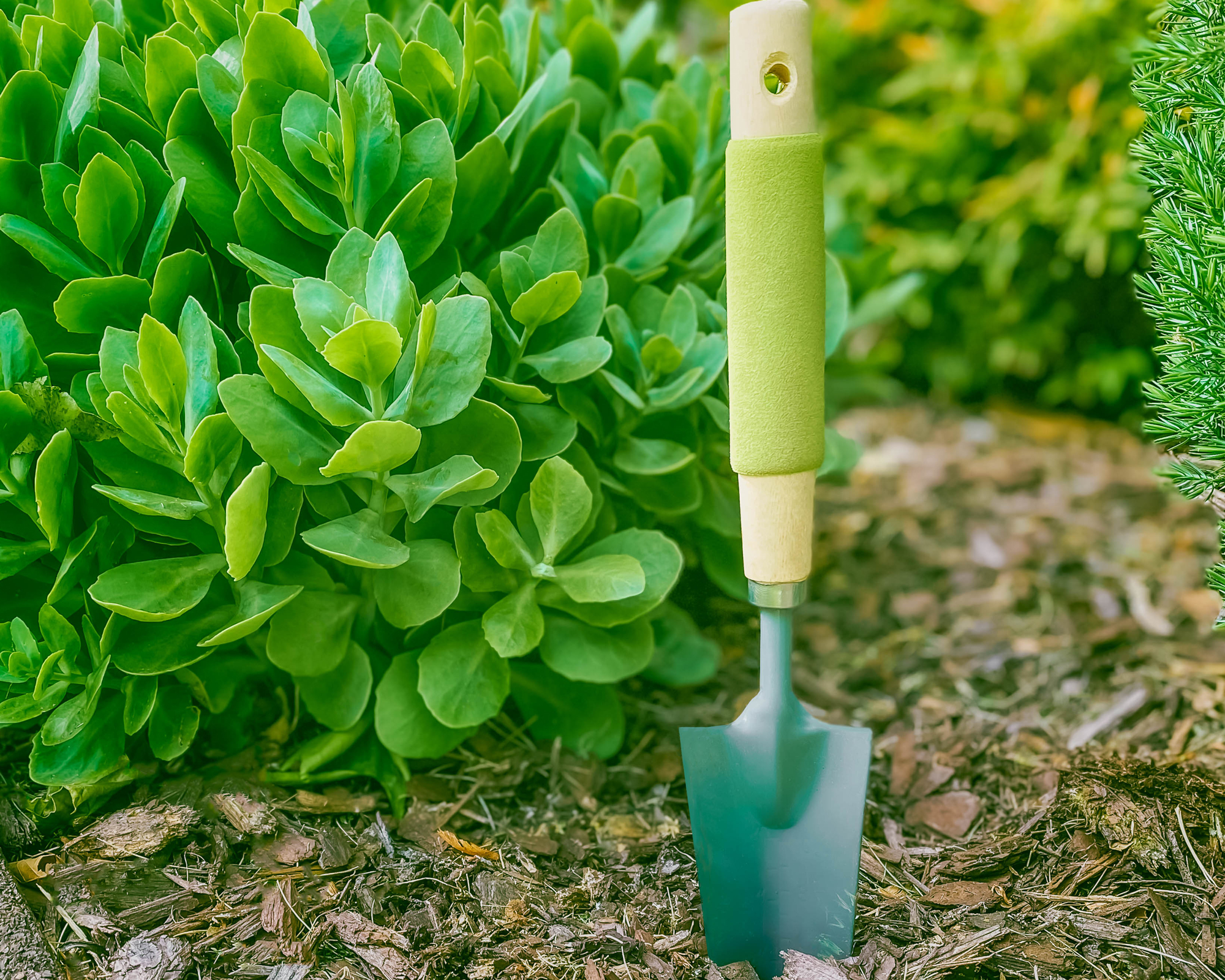
As for the backyard itself, your main consideration needs to be the soil. Heavy, compacted soil is bad news for gardens that are prone to flooding. John Valentino, a garden expert and the owner of John & Bob's, explains that drainage issues are often caused by compacted soil or clay soil that doesn't let the water absorb into the ground. There are several things you can do to make your garden more permeable, but improving the soil should be one of the first methods you try.
The first step is learning how to mulch and digging 'mulch and homemade compost that contains a lot of organic matter into the soil, which will help with drainage if the issue isn't too severe.'
If you have clay soil, you have a bigger task on your hands. John says that in this case 'you should try using an organic soil treatment that breaks apart the clay and allows more air and moisture to circulate throughout. This will help turn your clay soil into crumbly soil that drains quickly and helps plants to grow.'
4. Consider creating a pond
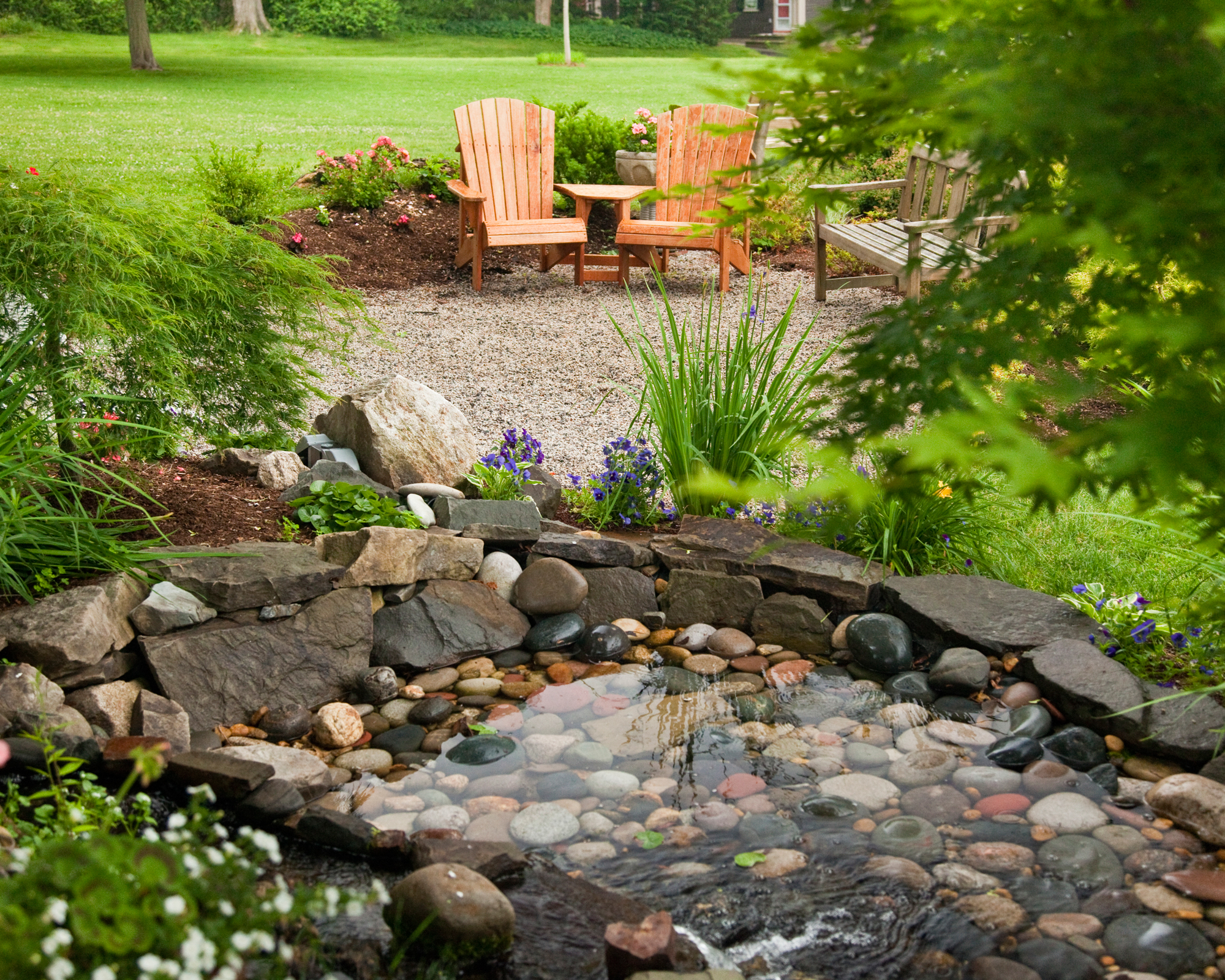
Garden pond ideas not only look great, but they can also significantly reduce the risk of your garden flooding. Angela says you can start with a mini pond in a smaller garden: 'Instead of growing plants in traditional compost in containers why not try growing water plants instead? These mini ponds provide an additional habitat that has the added benefit of attracting a huge range of amphibians (which will eat your slugs and snails) and insects including gorgeous dragonflies.
'Don't forget to provide a means of escape for any small mammals which may fall into your mini pond,' she adds. 'You can let the water levels drop quite low and let the natural rainfall re-fill them.'
Larger gardens, or those that are especially at risk of flooding, can benefit from having a real pond dug in. Angela explains, 'If you have the space for a real pond so much the better. Make sure any paths have a slight fall on them so they drain into the pond. Convert any hard brick, paving or concrete paths to grass or wood chip to absorb some of the rainfall and slow down the flow of water.'
5. Aerate the lawn
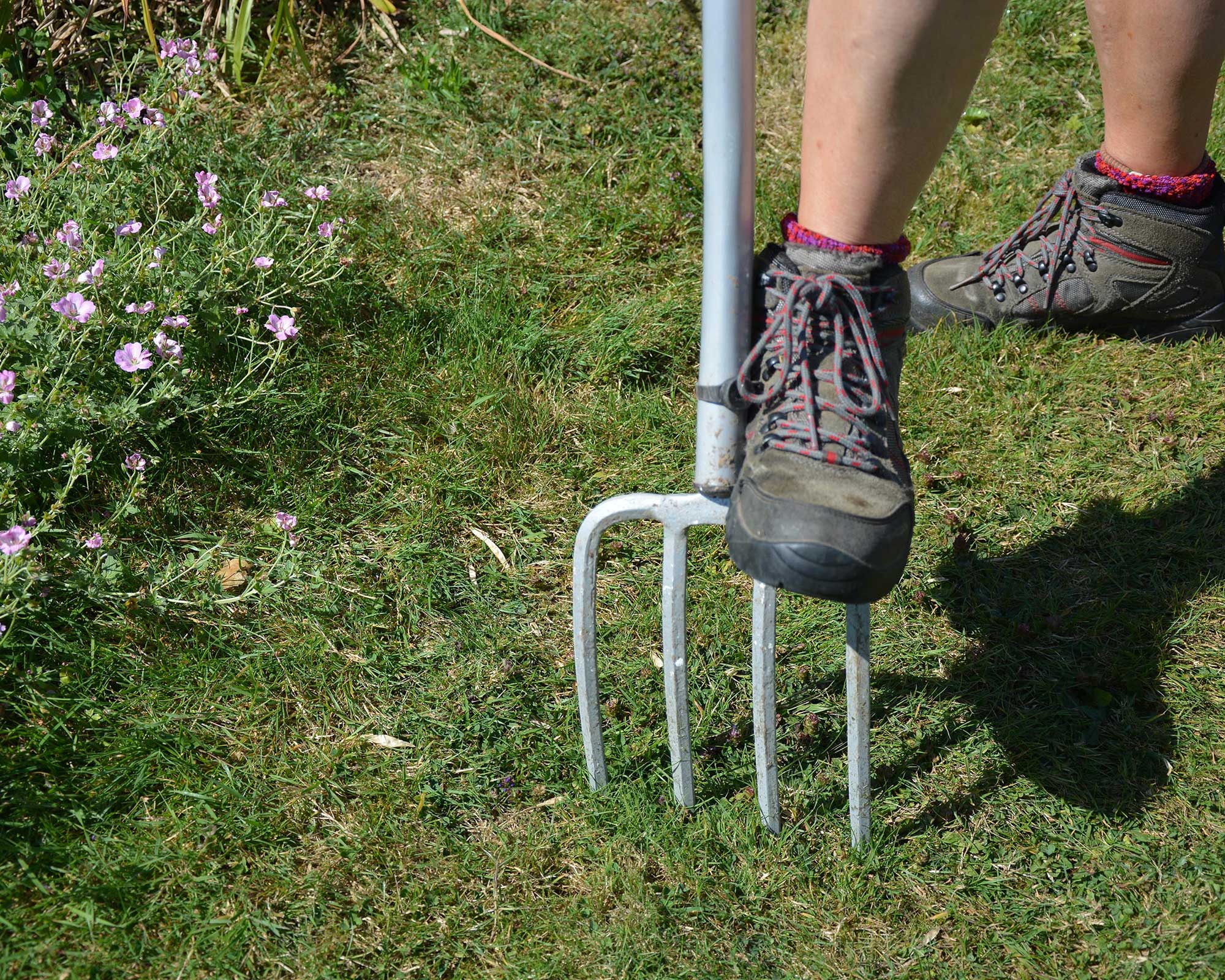
Finally, if you have a garden with a large lawn in the middle, this too can create problems with excess water rolling off the lawn rather than absorbing. Compacted turf will have this effect, but, fortunately, there is a way to prevent this – aerating.
John says, 'If water pools on your lawn then you can try aerating it. Take a garden fork and dig into the surface at regular intervals to create holes that allow air into the soil.'
All of these permeable garden tips are beneficial in multiple ways and can be incorporated into wildlife garden ideas. Making a garden more permeable will help prevent damage to your backyard and home and may even encourage you to introduce new plants.
Anna writes about interior design and gardening. Her work has appeared in Homes & Gardens, Livingetc, and many other publications. She is an experienced outdoor and indoor gardener and has a passion for growing roses and Japanese maples in her outside space.
